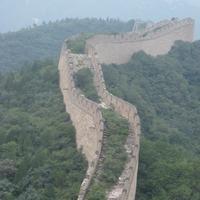20 九月初 九 话 重阳
đầu tháng Chín|||Trọng Dương
début septembre|||
20 Early September 9 Words: Chrysanthemum
20 Девятый день девятого месяца девятого года девятого лунного месяца
20 九月初 九 话 重阳
九月 初九 话 重阳
|ngày 9 tháng 9||Trọng Dương
|le neuvième jour||Double Neuf
The ninth day of September is called the double nine festival
农历 九月初 九 , 是 中国 的 传统节日 —— 重阳节 。
|||||||Tết Trung Cửu
lunar|||||||
The 9th day of the lunar calendar is the traditional festival of China - Chung Yeung Festival.
关于 重阳节 , 有 一个 传说 : 东汉时期 , 汝南郡 *( 现在 河南 东南部 ) 瘟疫 * 流行 。
|||||thời Đông Hán|Nhữ Nam huyện|||||
|||||dynastie des Han orientaux|le comté de Runan||||peste|
On the Chung Yeung Festival, there is a legend: In the Eastern Han Dynasty, the Junan County (now southeast of Henan Province) plague* was popular.
有 一个 叫恒景 * 的 人 , 父母 也 都 在 瘟疫 中死 了 。
||tên là Hằng Cảnh||||||||chết|
||nommé Hengjing|||||||peste|est mort|
There is a person named Hengjing, and both parents died in the plague.
有人 告诉 他 这 是因为 有 一个 魔鬼 把 疾病 带到 人间 。
|||điều này||||||bệnh||
Someone told him this because there was a devil who brought the disease to the human world.
于是 恒景 找到 一个 仙人 *, 学习 战胜 * 魔鬼 的 法术 *。
|Hằng Cảnh|||tiên nhân|||||
|Hengjing|||||vaincre|||
So Hengjing found a fairy *, learn to defeat * devil's spell*.
有 一天 仙人 告诉 他 : 九月九 日 魔鬼 又 要 出来 , 你 回去 告诉 乡亲们 , 到 那天 把 茱萸 * 装在 红 袋子 里 , 系在 胳膊 上 , 在 喝些 菊花 * 酒 , 到 高 的 地方 避祸 *。
|||||ngày 9 tháng 9||ma quái|||||||||||dương xỉ|||||buộc vào||||uống một ít|cúc||||||tránh họa
||sage|||le neuvième jour du neuvième mois||||||||||||||||||||||boire un peu|||||||éviter le mal
One day, the immortal told him: On September 9th, the devil will come out again. You go back and tell the folks. On that day, you put your 茱萸* in a red bag, tied it on your arm, and drank some chrysanthemums* to avoid misfortune in high places. *.
恒景 跑 回家 乡 把 仙人 的话 告诉 大家 。
Heng Jing ran back home to tell everyone about the fairy.
九月九 日 这天 , 魔鬼 到 村庄 来 了 , 却 发现 一个 人 也 没有 。
On the 9th of September, the devil came to the village and found no one.
他 抬头 * 一看 只见 大家 在 高山 上 , 但是 魔鬼 跑 到 山下 , 闻到 菊花 酒 和 茱萸 香味 * 不敢 上前 。
|||||||||||||||||cành dương xỉ|hương thơm||
He looked up and saw that everyone was on the mountain, but the devil ran to the foot of the hill and he smelled chrysanthemum wine and musk scent.
恒景冲 * 下山 杀死 了 魔鬼 。
Hằng Cảnh Xung||||
Hengjingchong||||diable
Heng Jing Chong* down the mountain to kill the devil.
从此 在 九月九 日 配戴 茱萸 、 喝 菊花 酒 、 登高 , 慢慢 成为 一种 习俗 。
||||đeo|cây nhựa ruồi||||leo núi||||
|||||||||grimper à une hauteur||||coutume
From then on, it was a custom to wear pipa, drink chrysanthemum wine, and ascend on September 9.
除了 喝 菊花 酒 , 吃 重阳 糕 也 是 重阳节 的 重要 内容 。
|||||Trọng Dương||||Tết Trung Thu|||
||||||gâteau||||||
In addition to drinking chrysanthemum wine, eating Chungyang cake is also an important part of Chung Yeung Festival.
因为 “ 糕 ”、“ 高 ” 同音 *, 象征 万事如意 *、 步步 “ 高 ” 升 。
||||tượng trưng|mọi điều như ý|||
|||homophone|||pas||
Because "cake" and "high" homophonic *, symbolizes all the best, step by step "high".
重阳节 配戴 茱萸 、 喝 菊花 酒 、 吃 重阳 糕 这些 习俗 在 现代 社会 已经 不多见 * 了 , 但 在 重阳节 观赏 菊花 、 野外 登高 的 人 还是 相当 多 的 。
||||hoa cúc|||||||||||||||||||||||||
|porter|chèvrefeuille|||||||||||||rare|||||admiration||en plein air|||||||
The customs of the Chung Yeung Festival with Dai Dai, drinking chrysanthemum wine, eating Chihyang cakes are rare in modern society.* However, there are still many people who watch chrysanthemums on the Chung Yeung Festival.
从 宋朝 起 一直 到 现在 , 许多 大中城市 在 重阳节 都 要 举行 赏菊 会 *, 展出 各种 美丽 的 菊花 。
|||||||các thành phố lớn||||||ngắm hoa cúc||||||
|||||||grandes et moyennes villes||||||admiration des chrysanthèmes||||||
From the Song Dynasty to the present, many large and medium-sized cities have to hold ceremonies to celebrate the Chung Yeung Festival* and exhibit a variety of beautiful chrysanthemums.
[ 中国 音乐 和 音乐家 ]
[Chinese music and musicians]

